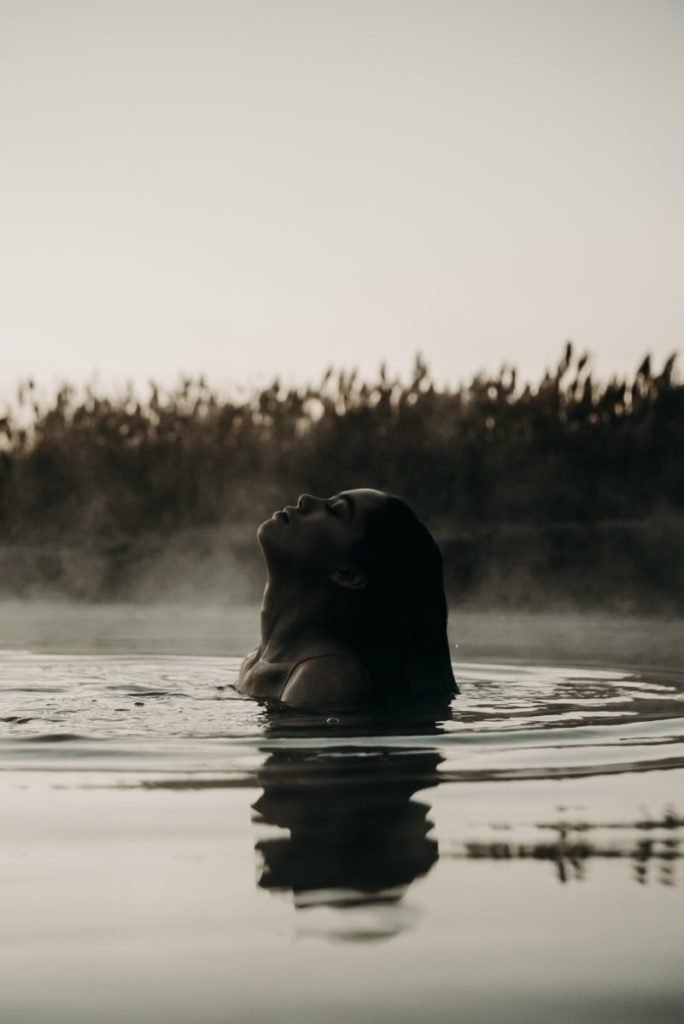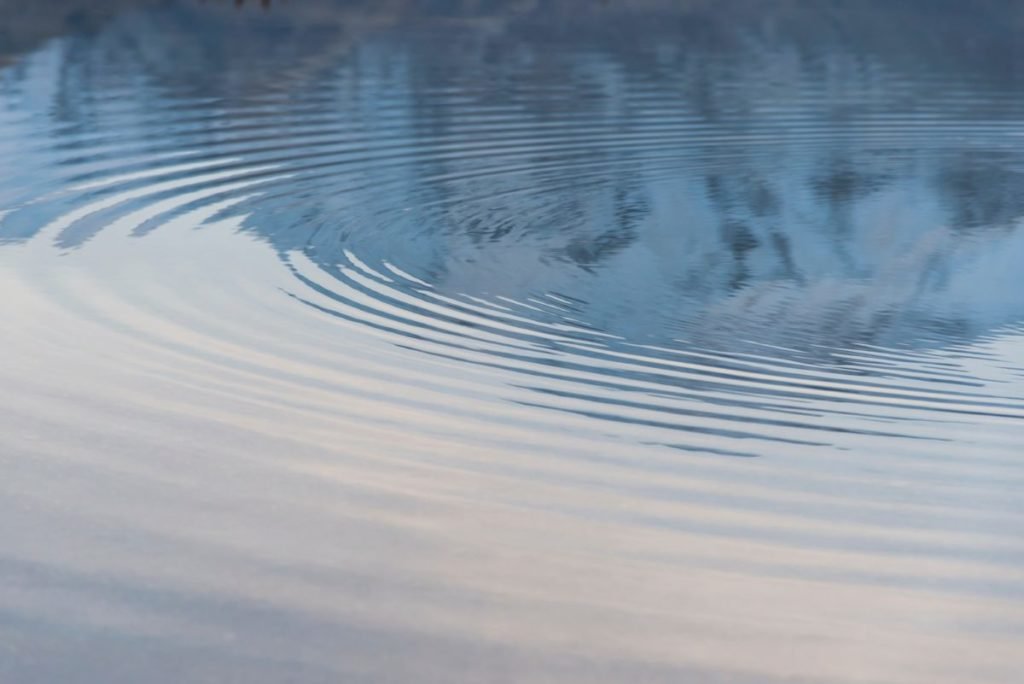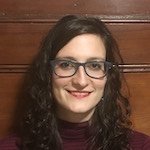
People will say it was suicide, but you mustn’t believe them. They’ll say I looked normal at first, a tall woman with long black hair in a gray, knee-length skirt. They’ll explain how I disappeared down the spur trail, into the woods, to the patch of dirt that dips into the Potomac River.
When the newspapers announce my death, they’ll speculate that I desired to die. They’ll report that I ignored the “Swimming Prohibited” signs. The dog-walkers will confirm that they’d seen me on the C&O Canal path before, that my Golden Retriever would regularly sniff their German Shepherds’ behinds.
Jake, my husband, will offer journalists a standard statement: “She didn’t exhibit any prior suicidal tendencies.” His smooth voice will hide any doubt. But at night, Jake will lie awake in a fetal position on the edge of the bed in search of an answer. If only he’d remembered to properly fasten the twist ties so our loaves of bread didn’t go stale. If only he’d rejected his colleague’s flirtations at that cardiology conference three years ago. If only he’d held me closer after the miscarriage.
My mother, who’ll drive down from Jersey for the shiva, will question whether she pushed me too hard. If she’d allowed me to go to soccer games instead of Hebrew School, if she’d controlled her temper when I came home past curfew, if my father hadn’t died of colon cancer when I was fifteen—would I still be alive?
“I did find antidepressants under the bathroom sink last month,” Jake will admit to my mother as they fold foil over the casseroles that arrive on the doorstep.
“Miriam’s grandfather struggled a lot with depression too,” my mother will respond. “Did you know that?”
Jake will nod, then wonder if he did know that.
At the shiva, friends and family will do their best to celebrate my life.
“Miriam made the best kugel in the world,” my aunt will say, brisket juice dripping from her chin. “Even better than bubbe’s.”
“And that’s really saying something!” Uncle Harold will chime in, stuffing a deviled egg into his mouth.
In the kitchen my college roommate will find Jake peering into the bottom of his wine glass.
“You know, Miriam wouldn’t shut up about you when you first started dating,” she’ll say.
He’ll offer a sad smile, then hold onto the words when you first started dating, wondering what changed.
On their drives home from the shiva, guests will ponder whether misery is contagious. When they arrive at their houses, they’ll squeeze their daughters a little tighter and make love to their husbands despite their stuffed bellies. In the morning, they’ll check in on their wobbly fathers. How could Miriam do this to her mother, they’ll ask. What a shame she chose to die.
But you must know, they are all mistaken. I did not desire to drown on that August afternoon.
I only wanted to take a bath.
You see, every month, ever since I married Jake, I visited the mikvah, the Jewish ritual bath. Seven days after my period, I’d drive to the synagogue and purify my body. I’d wipe off my nail polish, brush my teeth and even floss. I’d swirl a cue-tip in my belly button, remove my wedding band, clean the gunk from the inner corners of my eyes. An old Russian lady, who rarely showed her teeth, checked to make sure that my body was kosher, ready for the immersion. As I dipped into the rectangular mini-pool filled with lukewarm water, I imagined the matriarchs—Sarah, Rebecca, Leah, and Rachel—cleansing themselves just as I did. On my third and final dip, I’d pray to the Prophetess Hannah. I begged her to bring me a child.
When I was thirty-four, Hannah finally answered. I delighted in the vomit and cramps and swollen breasts that meant a baby was growing inside of me. Jake celebrated with a string of dad jokes, the ones he’d been waiting to use. But then, six weeks later, I woke up to soaked brown sheets. The pregnancy was over, just like that. I sat on the toilet and let the blood leak from below. I flushed my little embryo into the sewer system. After a week, I returned to the mikvah.
***
On the day of my death, I had just learned that I was pregnant again. Our dog Casey spent an extra long time that morning at the dirt patch by the Potomac, where she’d dig up Rotisserie chicken bones left behind by summer picknickers. I peered out at the calm river, at the grassy island in the middle of the water, at Virginia on the other side. Above me, swinging ropes dangled from the thick oak branches that hovered above the river. I wondered if I’d ever be bold enough to jump in. Maybe when you are born, I thought, I’ll take you here and teach you how to swim.
That afternoon, as I sat in my home office on calls with clients, my underwear dampened. Slowly at first, then all at once. I shut off my camera, pulled down my pants, and saw the bright red stains. I knew you were on your way out. After only a week. You didn’t even let me tell Jake.
This time, I didn’t drive to the mikvah. I didn’t wait the required seven days. I walked to that dirt patch of the Potomac and began to shed my clothes. I didn’t care about the storm on its way.
You must know that I didn’t want my life to end. I only wanted to let you out, to deliver you to the river. I wanted you, my tadpole, to swim with the eels and ride the backs of turtles. I couldn’t flush you down the toilet. I couldn’t force you to navigate the sewer system with the dead goldfish and the feces and the accidental tampons.
So I waded to the center of the river, where my head bobbed above the surface. I closed my eyes and submerged three times. I flipped to my back and floated downstream like a tourist on a lazy river ride. A tune came to me—one of the first tunes I learned in Hebrew school—and I began to sing to you:
Hinneh mah tov umah na’im. How good and how pleasing. Shevet achim gam yachad. To dwell together in unity.
I chanted as I floated, and you flowed out of me. Maybe some dog-walkers on the trail above spotted me through the trees, wondering if they should call the police. Children on their bikes probably thought I was one of those crazies they were taught to avoid.
Then it happened: The current grew stronger. The trees above shivered in the wind, and the sky began to sob. I spun to my stomach and paddled breaststroke, then freestyle, towards the shore. But as I swam down to resist the current, eyes closed underwater, I felt a thump to my head. My vision went white, then turned to crimson, then everything was blurry. I’d hit a rock. My saliva tasted like metal. Blood flooded my eyes. I could no longer see the sandy beach or the dog walkers or the kids on bikes. I stopped chanting, I think, but the tune reverberated within my body.
I was alone with you, my tadpole, my roshan. You dove to the bottom of the river, then begged me to follow.
***
When I first arrived here, I wasn’t convinced this is an afterlife. No one’s in white, no angels spread their wings, no bright light streams from afar. The rainforest around us is lush in its trees and plants and damp earth, but none of us touches the ground.
“Where are we?” I asked the middle-aged woman floating in the bubble next to mine. She introduced herself as Hannah.
“We are in waiting,” she replied. “You’ll be here a while. Thirty-five years, to be exact.”
“How do you know?” I asked.
“Were you not thirty-five when you died? You see, we grow old on earth, but here, we grow young. We age backwards.”
I stared at her, not quite understanding. She continued.
“In a few years you’ll be back in your twenties. You’ll become a hormonal teen, then a happy child, then a wailing infant. By the time you leave here, you’ll be the size of a poppy seed, and you’ll be ready to seek out a new womb back on earth.”
I remained silent and wondered if this was the Hannah.
She offered a gentle smile. “I know you’ve desired a baby. I heard your prayers, and I tried to answer them.”
I asked Hannah how to find you. She advised me to call out your name, loud and clear.
“My tadpole,” I shouted across the tropical plants.
Now, three days later, here you are, a speck of blood, floating above the bright orange mushrooms. I know that it’s you, though I don’t know how.
Do you know that it’s me?
Soon, I’ll search for my father. He died at fifty-one. If my math is correct, he’s about thirty-six now. He’ll have a full head of hair, like the man from our old home videos. Maybe I’ll grow young with him.
You, on the other hand, you have only a few days left here. Soon your tiny bubble will burst, Hannah said, and you’ll try another woman’s womb back on earth.
Did you understand her, my tadpole? Do you understand anything I am telling you?
When you return to the earth, if you see my Jake, please tell him I love him. Tell him he is not to blame. If you see my mother, give her a hug. Tell her that I forgive her for the tantrums, that I’m grateful for the traditions. Tell her I’m with Dad now.
Of course, I know you won’t see Jake or my mother. You’ll forget all about me when you re-enter the world in another woman’s womb.
But maybe, when you’re eight or fifteen or twenty-nine, you’ll walk past a synagogue or attend a Jewish wedding, and you’ll hear a joyful melody. You’ll sense, somewhere deep within your rib cage, that you’ve heard the melody before, long ago, as if in a past life. Maybe you’ll desire to dip in a mikvah or braid a challah. Perhaps you’ll feel an urge to find your ancestors, even those you never knew.
And maybe, when I’m an infant in a stroller, I’ll see a thirty-five-year-old woman passing on the street, and I’ll giggle my very first giggle. I won’t know it’s you, but you’ll stop to say hello, what a cute baby. I’ll wrap my whole hand around your bony thumb. With a wail, I’ll beg you never to leave me. You’ll unpeel my fingers, smile at my mother, and continue window shopping.
Hinneh mah tov umah na’im, shevet achim gam yachad. How good and how pleasing, to dwell together in unity.
Goodbye, my tadpole.


Share this post with your friends.


Powerful and poignant poem!